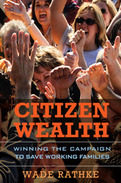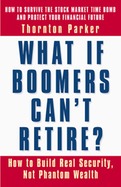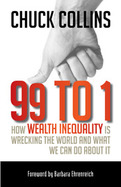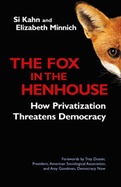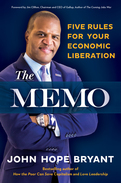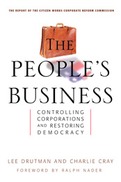2009
• By the founder of ACORN, the nation’s largest grassroots community organization of low- and moderate-income people
• Goes beyond piecemeal solutions to present a holistic strategy for helping working people establish a solid economic foundation
• Draws on lessons learned from Rathke’s 40 years in the field
America’s safety net is torn and tattered. Income inequality continues to grow—the gap between rich and poor has expanded fivefold in the last 25 years. For millions of working families achieving basic middle class comforts has begun to seem as distant a dream as winning the lottery. What is needed, and what veteran organizer and ACORN founder Wade Rathke provides in this hard-hitting new book, is a comprehensive grassroots strategy to create what he calls citizen wealth: an enduring foundation on which working people can build a future that extends beyond paying next month’s rent.
Rathke shares breakthrough strategies that have enabled ACORN and other organizations help people secure the basics of citizen wealth—a house and a decent income—offering from-the-trenches advice on mounting successful living wage campaigns, battling unscrupulous and predatory lending practices, and developing new forms of worker organizations to protect wages and benefits. The anti-poverty programs still out there can provide critical support for citizen wealth-building efforts, but they’re woefully underutilized. Rathke shows how to cut through government indifference and bureaucratic obstacles to provide those in need with access to these vital resources.
But community organizations can’t do it alone. Rathke describes ACORN partnerships with HSBC Bank and H & R Block that helped these businesses see building citizen wealth as a new market opportunity—a win for them and for the people they once exploited. And he looks at other examples of strange bedfellows in the fight for citizen wealth, including Citibank, once the target of massive protests by ACORN and now, working with them, a major investor in working class communities.
“We need to create a national economic and political consensus that increasing family income, wealth and assets is not `welfare’ or an entitlement ‘give-away” program but an investment in the public good and well-being.” Rathke writes. Based on forty years of hard-won experience, Wade Rathke offers a new blueprint for helping millions to achieve the American Dream.
-
Debunks the popular but dangerous myth that inflating stock prices creates national wealth
-
Reveals what can be done to avert potential disaster for future retirees and the nation
-
Shows readers how to evaluate the long-term effectiveness of their retirement portfolios
2012
Brings together facts and figures showing what "the 99% and the 1%" divide means in the real world and the damage it causes.
Over the past thirty years, we’ve seen a radical redistribution of wealth upward to a tiny fraction of the population. Here, activist Chuck Collins explains how it happened and marshals wide-ranging data to show exactly what the 99/1 percent divide means in the real world and the damage it causes to individuals, businesses, and the earth. Most important, he answers the burning question, what can be done about it? He offers a common-sense guide to bringing about a society that works for everyone: the 100 percent. This is a struggle that can be won. After all, the odds are 99 to 1 in our favor.
- Read a transcript of Amy Goodman's interview with Si and Elizabeth on Democracy Now!
- A legendary activist and a distinguished public philosopher address a timely but complex issue in a way that is accessible and compelling
- Evaluates privatization not just economically, but in social, political, and human terms
- Offers principles and practices for creating alternatives to privatization and strengthening the public sector
2017
Building on his personal experience of rising up from economically disadvantaged circumstances and his work with Operation HOPE, Bryant teaches readers five rules that lay the foundation for achieving financial freedom. He emphasizes the inseparable connection between “inner capital” (mindset, relationships, knowledge, and spirit) and “outer capital” (financial wealth and property). “If you have inner capital,” Bryant writes, “you can never be truly poor. If you lack inner capital, all the money in the world cannot set you free.”
Bryant gives readers tools for empowerment by covering everything from achieving basic financial literacy to investing in positive relationships and approaching wealth with a completely new attitude. He makes this bold and controversial claim: “Once you have satisfied your basic sustenance needs—food, water, health, and a roof over your head—poverty has more to do with your head than your wallet.”
Bryant wants to restore readers' “silver rights,” giving them the ability to succeed and prosper no matter what very real roadblocks society puts in their way. We have more power than we realize, if only we can recognize and claim it. “We are our first capital,” Bryant writes. “We are the CEOs of our own lives.”
More than ever, large corporations wield an unjustifiably excessive influence over our lives. The consequences are indeed frightening-environmental destruction, political corruption, erosion of democracy, increased polarization between rich and poor, declining wages and benefits, increased stress and overwork. As corporations become more powerful, these problems will only get worse.
The People's Business offers a comprehensive series of proposals for reforming and restructuring corporations so that they become the people's servants, not their masters. Writing in a lively populist style, the authors pull together recommendations from the prestigious members of the Citizen Works Commission on Corporate Reform to present a clear-headed plan of action.
Drutman and Cray discuss how corporations managed to achieve their current privileged position and offer a comprehensive approach for reconceiving corporations as engines of public prosperity, not private plunder. They outline specific reforms that could be enacted to get corporations out of politics, establish truly public-minded regulation of corporate behavior, safeguard our natural resources, combat unfair market domination by corporations, crack down on corporate crime, and challenge the corporate claim to constitutional rights.
Bolstered with relevant history and recent examples, The People's Business is a lively book that will appeal both to deeply-committed (and often frustrated) long-time activists looking for a coherent approach in the struggle for corporate accountability, as well as relative newcomers looking for immediate measures that could serve as effective means of corporate reform.
- The official report of a commission of 50 prominent leaders of the corporate reform movement that includes such notable members as Ralph Nader, David Korten, Herman Daly, Medea Benjamin, and many others
- Includes specific, detailed prescriptions for how we can take our country back from corporate rule and integrates them into a coherent strategy
- Written in an engaging, hard-hitting style with lots of concrete examples


